On January 15, 1947, Beth Short’s gruesome murder pushed everything else off the front pages. But during her missing week, January 9 to 15, other stories occupied the minds of Los Angeles residents, like the Flower of Temple Street.
Bitter rivals, nineteen-year-old Jenny Trejo and twenty-year-old Josephine Soto, met in the parking lot of the Carioca Café at Figueroa and Temple on the evening of January 9, 1947.
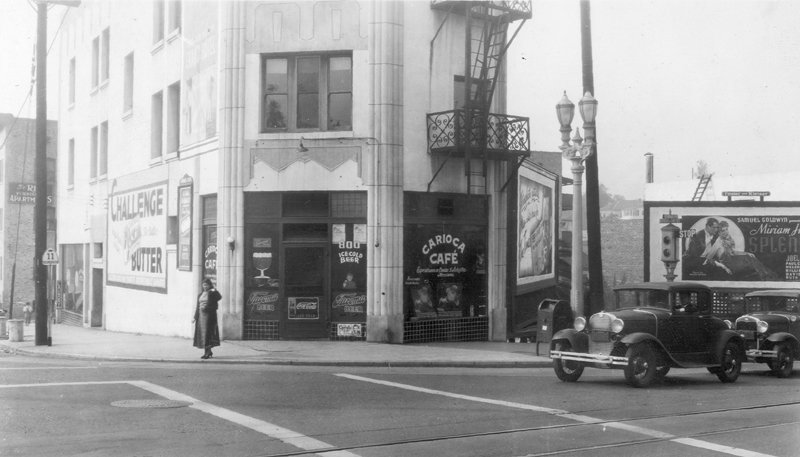
Why the rivalry? The neighborhood was only big enough for one of the pretty young women to hold the title of the Flower of Temple Street, and it currently belonged to Jenny. She would fight to keep it. The animus between them was mostly about who was the prettiest, the best dressed, and the most desirable to the local men. Nobody could pinpoint when the feud began, but it went back several months, even before they came to Los Angeles from El Paso, Texas. Jenny with her husband and Josephina with her boyfriend, Porfirio Mendoza.
Josephine recently asked Porfirio for a knife for protection. She told him Jenny threatened to “get her.” When she accepted Jenny’s request to meet at the Café, Josephine brought the knife; just in case.
Jenny and Josephine exchanged words. Jenny produced a three-inch blade and stabbed Josephina three times in the chest and once in the neck. Josephina staggered 50 feet before she twisted grotesquely and slumped to the ground.
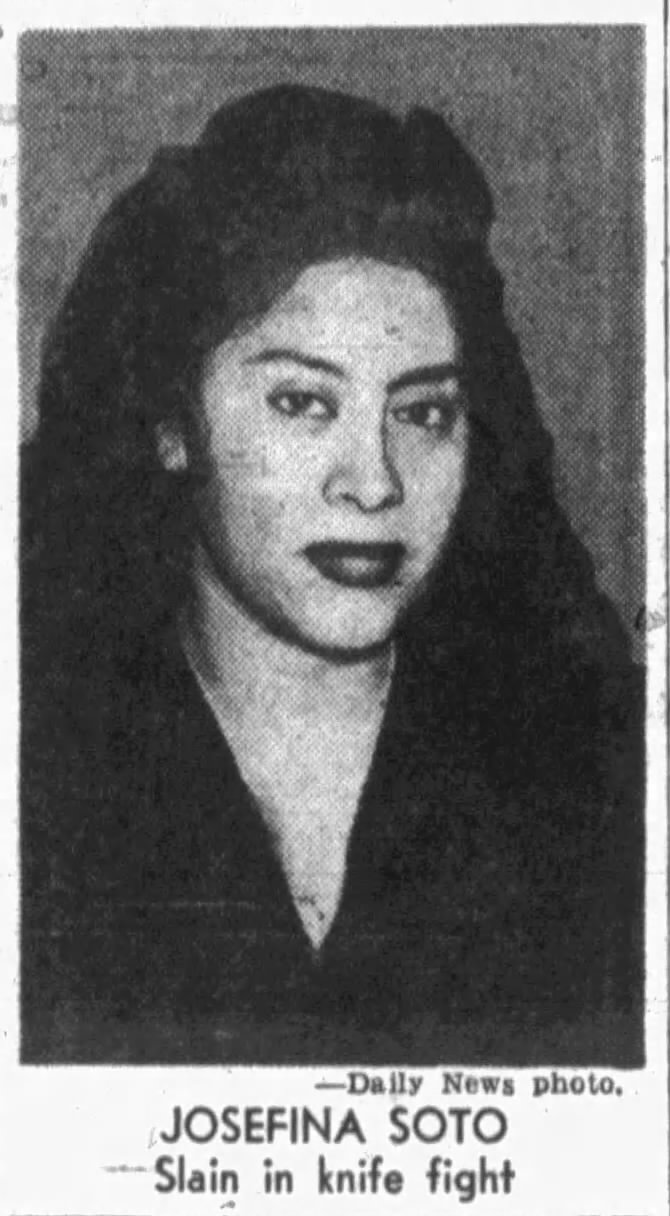
Friends of Jenny’s advised her to flee to Mexico. They told her, “When they get you, you’re going to be in for a long time.” With her husband in prison on a narcotics rap, Jenny had few resources to make it across the border. She first went with her friends to 14th and San Pedro, then by a streetcar to Sixth and Main, by another streetcar to Santa Monica, and then by bus to San Francisco.
Police couldn’t locate the fugitive. At the end of February, weary of hiding out, she went to a police station in San Francisco and surrendered. When questioned, she said, “I don’t know why I stabbed that girl. I just got mad all of a sudden. If I say I’d had a little wine, no one will believe me.”
Once back in Los Angeles, police booked Jenny into the Lincoln Heights jail. Her appearance in court drew a crowd. Not all of them supported her. One woman said, “I used to be a friend of hers, but no longer. I hope they hang her. She was just envious of Josephine because boys were attracted to her more than to Jenny.”
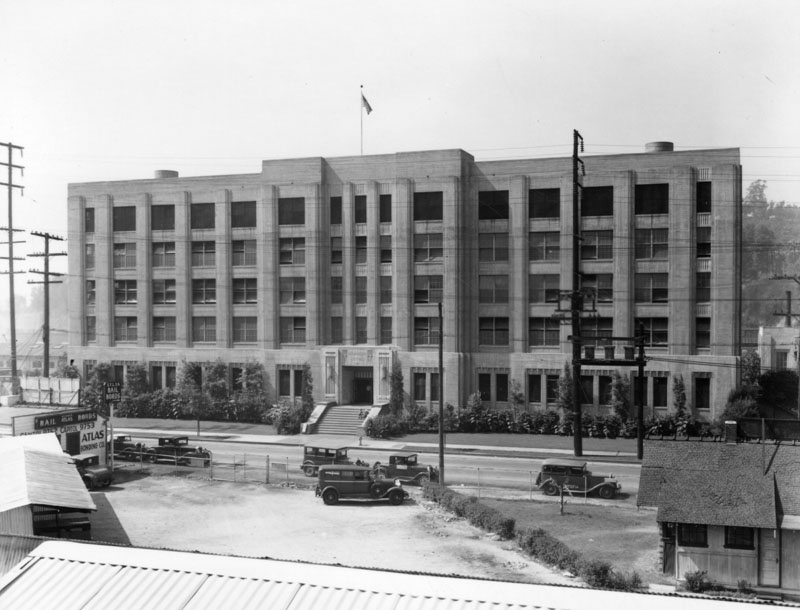
Biatrice and Ramona Flores, who both lived at 317 N. Figueroa Street, recalled what they witnessed on January 9th. “Jenny drove up in front of the Carioca Café with a boyfriend,” they said.
Biatrice and Ramona continued. “Suddenly Jenny asked Josephine, ‘Are you laughing at me?’” Then, according to Biatrice, the two women walked down into the street and behind a billboard into a parking lot. Biatrice said she and Ramona followed them. “I saw them fight—we ran to stop them—but Josephine was bleeding. I wrapped a coat around her neck because she had a hole in her neck. She just laid there, and that’s all.”
Later Jenny said to Dora Rose Fuentes, “I cannot get away with murder.”
The testimony of the witnesses was at odds with Jenny’s version of events in which Josephine wielded the knife and stabbed herself accidentally. Seriously? Three times in the chest, and once in the neck? Jenny’s version was fantasy.
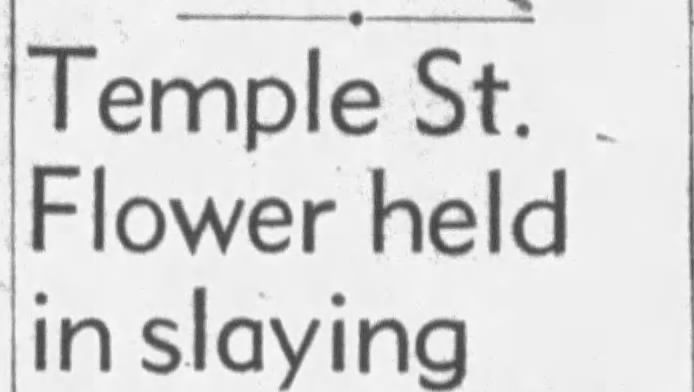
Jenny opted to waive a jury trial and let Judge Walter S. Gates decide her fate. He found her guilty of manslaughter. While awaiting her sentence, Jenny divorced her husband, Salvador Trejo. She said Trejo beat her. The divorce would be the only good news she would receive for a while.
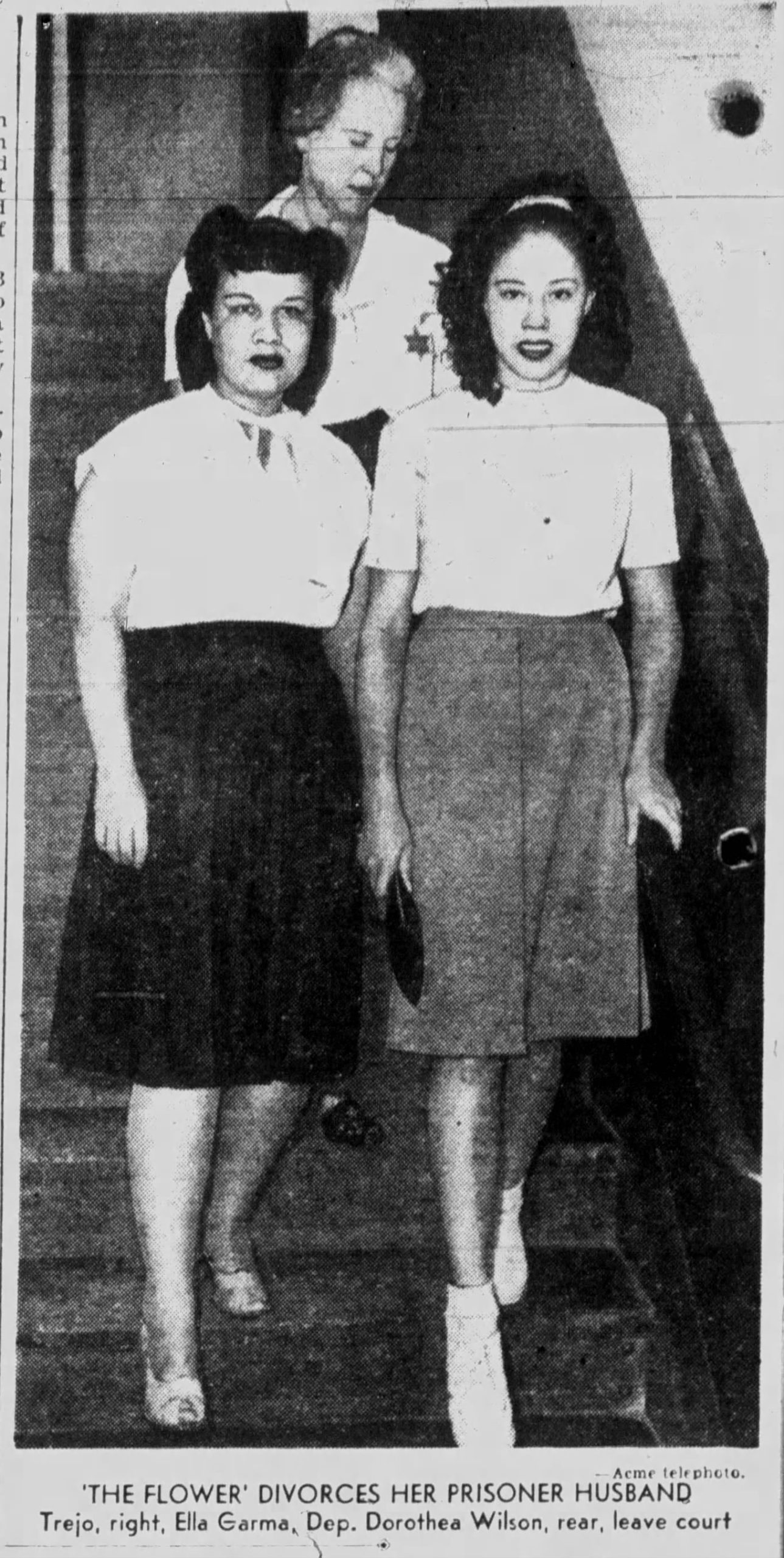
Judge Gates sentenced Jenny to one to ten years in Women’s Prison at Tehachapi.
No flower does well for that long without sunshine.
